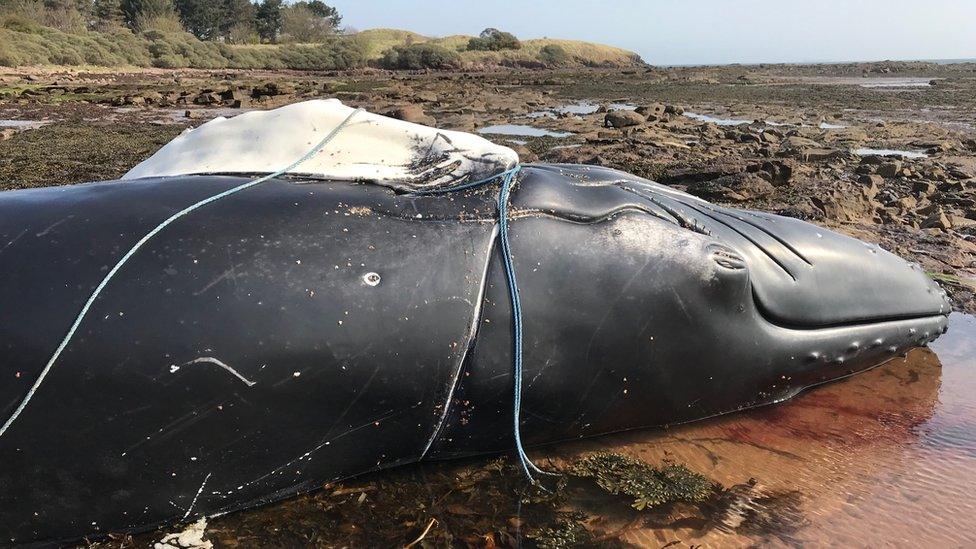The Scottish project trying to save entangled whales
- Published
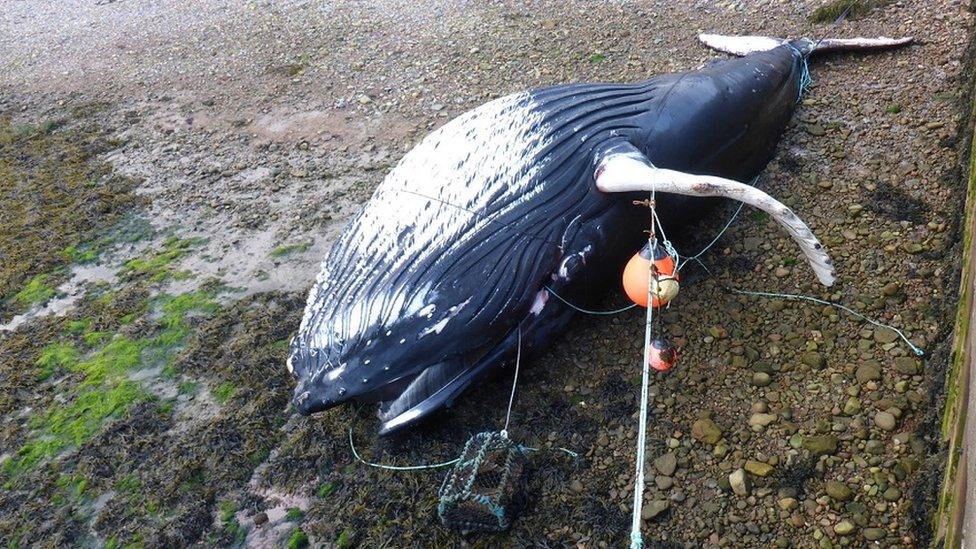
Entanglements with creel fishing gear can be fatal for whales and other large marine animals
When whales, dolphins and sharks become entangled in fishing lines and nets, it can affect the animals' ability to breathe, feed, swim and reproduce.
In some cases, it cause serious injury and even death.
Now the first phase of a project set up to reduce numbers of large marine animals becoming tangled in creel fishing gear in Scotland has been completed.
The Scottish Entanglement Alliance (SEA) was set up in 2018 and it brings together conservationists and creel fishers.
The first phase has seen fishers receive training on how to safely disentangle animals from fishing gear.
Creel fishers have also offered solutions to the problem of entanglement such as rope-less creels.
Creel fishing involves dropping baited creels from boats to catch prawns, crabs and lobsters.
Whales and other large marine life can become caught in rope that runs between the creels on the seabed to a buoy on the surface.
There has been a rise in entanglement cases in recent years, from four in 2014 to 18 in 2018 and 15 in 2019, according to Scottish Marine Animal Stranding Scheme, one of the organisations involved in the project.
Reports fell to five in 2020, with the Covid pandemic playing a part in the decrease in reports, and eight reported so far in 2021.
Through discussions with almost 160 fishers, SEA has gathered details of 146 incidents of entanglement in Scottish waters over the last 10 years.
The project said only a few of these were previously known showing the problem had been "hugely under-reported".
There is now a legal obligation for fishers to report entanglements.
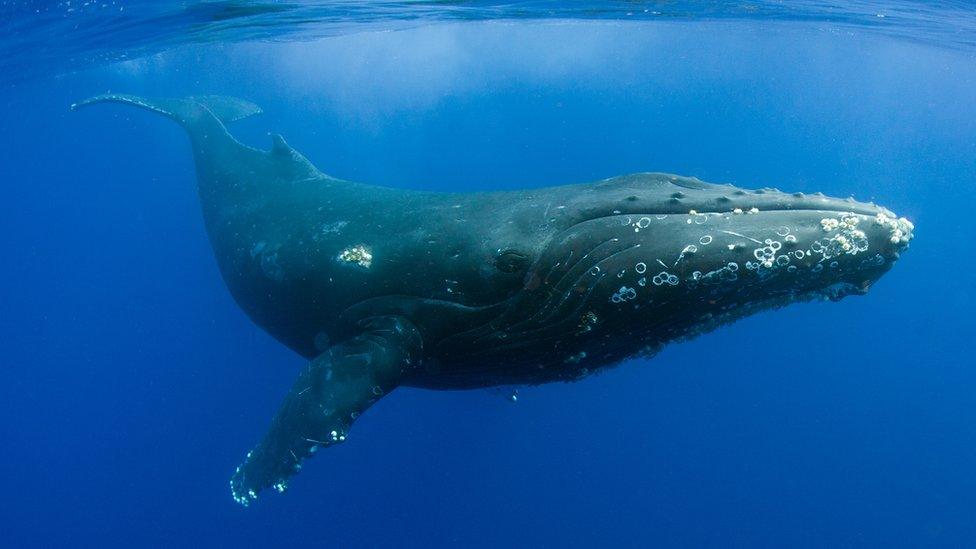
SEA was set up in 2018 with the aim of reducing creel fishing risks to large marine animals
A new report , externalon the first phase of SEA said entanglement was the largest identified cause of death due to human activity in minke and humpback whales in Scottish waters.
It was also the only known cause of human-driven mortality in basking sharks and marine turtles.
During surveys at sea, more than 22% of live minke whales observed on the west coast of Scotland showed evidence of previous entanglements.
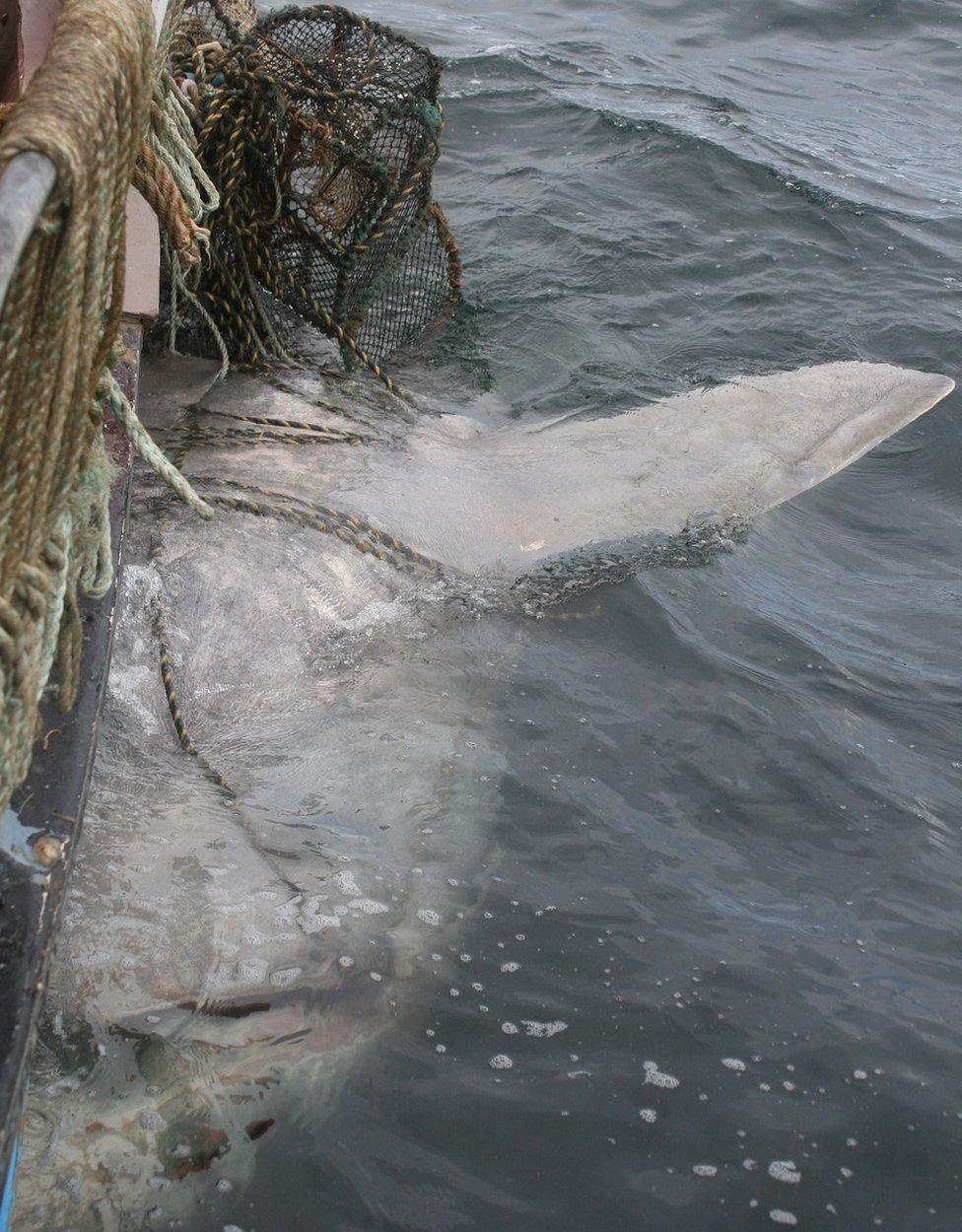
A basking shark caught in creel fishing gear
SEA, which has been described as a the first body of its kind in the UK, involves commercial creel fishers, public body NatureScot, research scientists and marine mammal conservation and rescue charities.
Dr Kirstie Dearing, NatureScot's fisheries advisor, said: "We all find it upsetting to see our majestic marine species in distress, so we're really heartened by the strong commitment and willingness of the fishing industry to work towards practical, safe and sustainable solutions on the issue of entanglement.
"We will only solve this problem by working in collaboration on potential legislative changes. The new reporting obligation will also help us to understand the extent of the issue more clearly."
Bally Philp, of Scottish Creel Fisherman's Federation, said the organisation was proud to take part in the project.
He said: "We look forward to collaborating with our partners on sourcing funding for the next phase of this project, which will be to research and develop equipment and strategies to reduce entanglement of cetaceans and sharks in our fisheries."
- Published16 January 2020
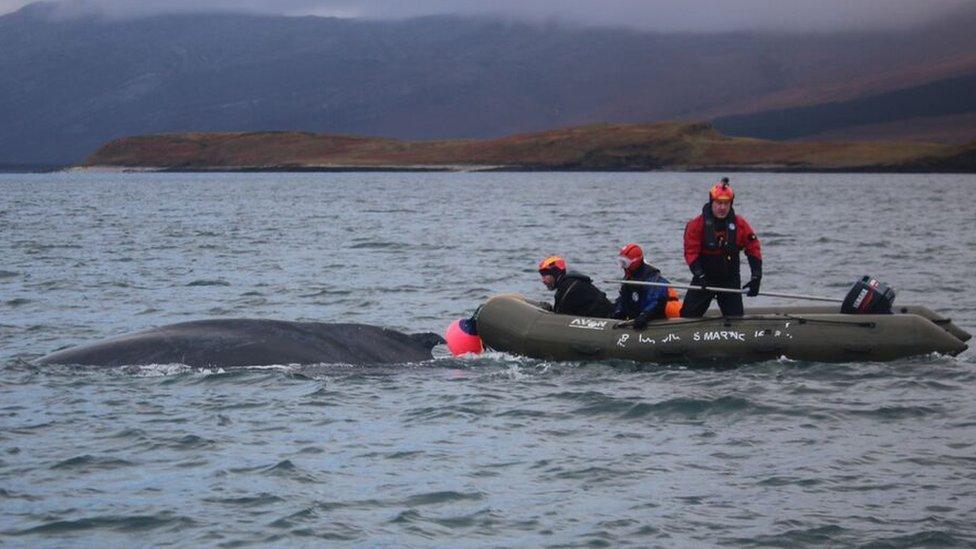
- Published9 September 2021
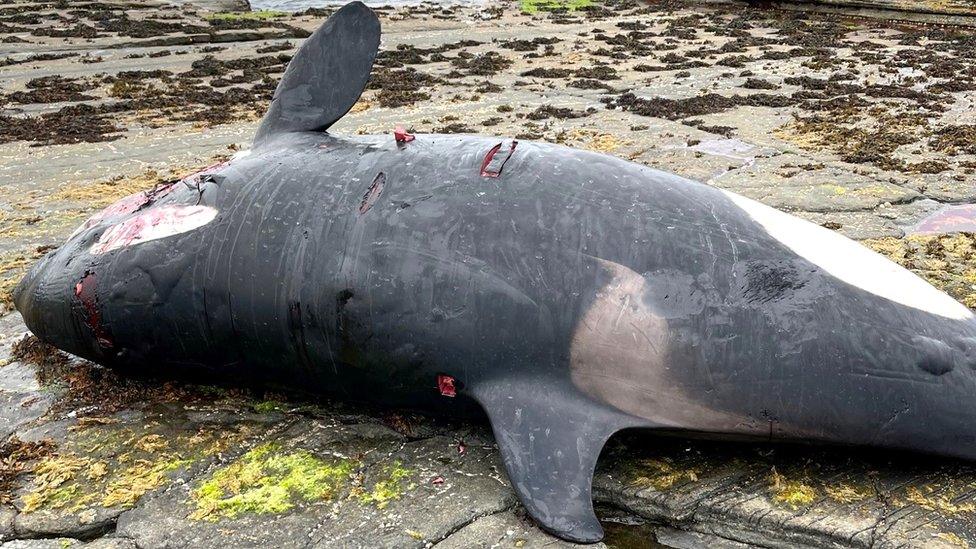
- Published25 April 2019
